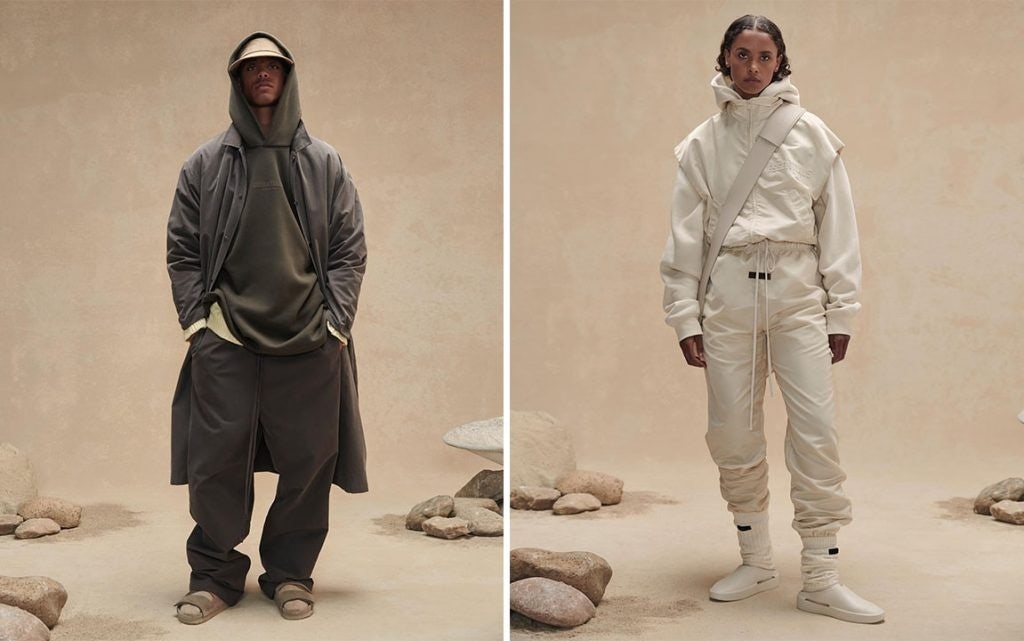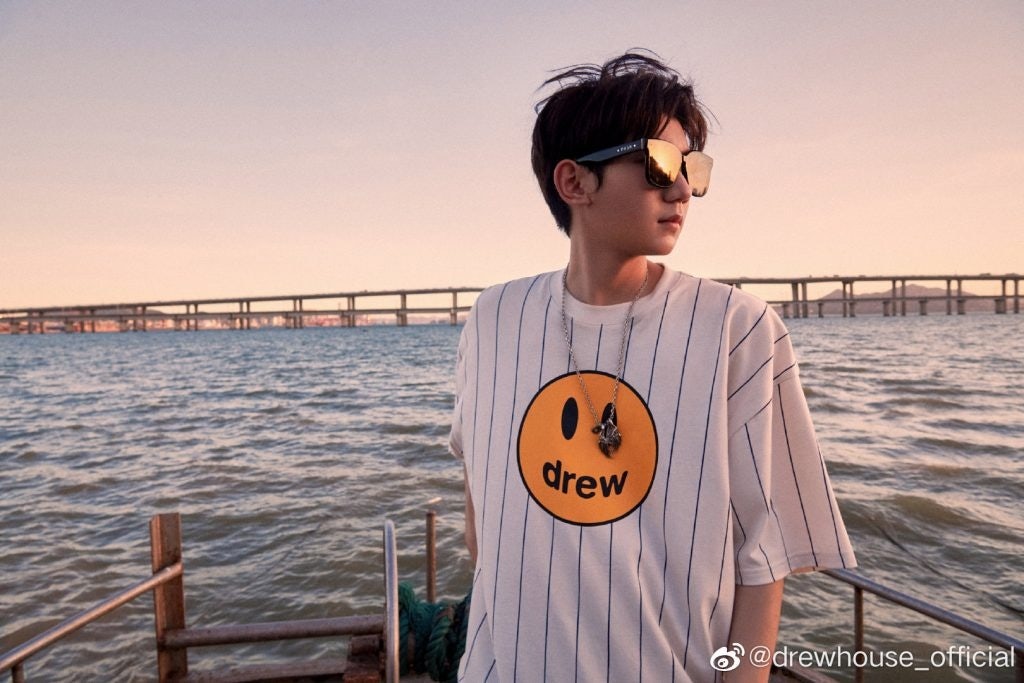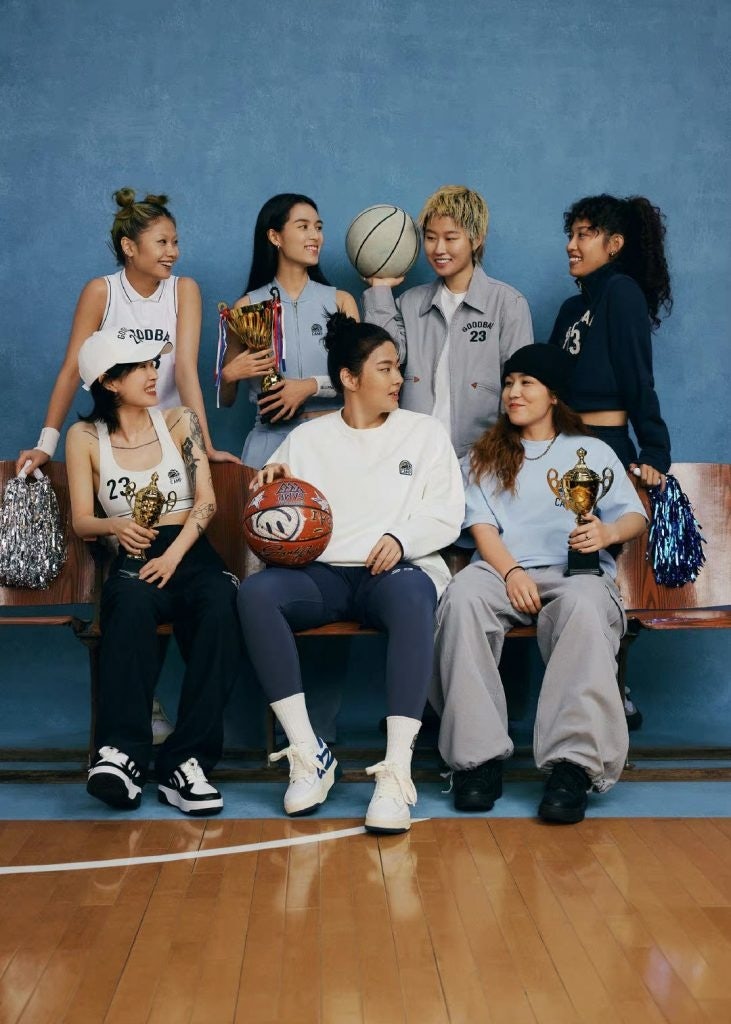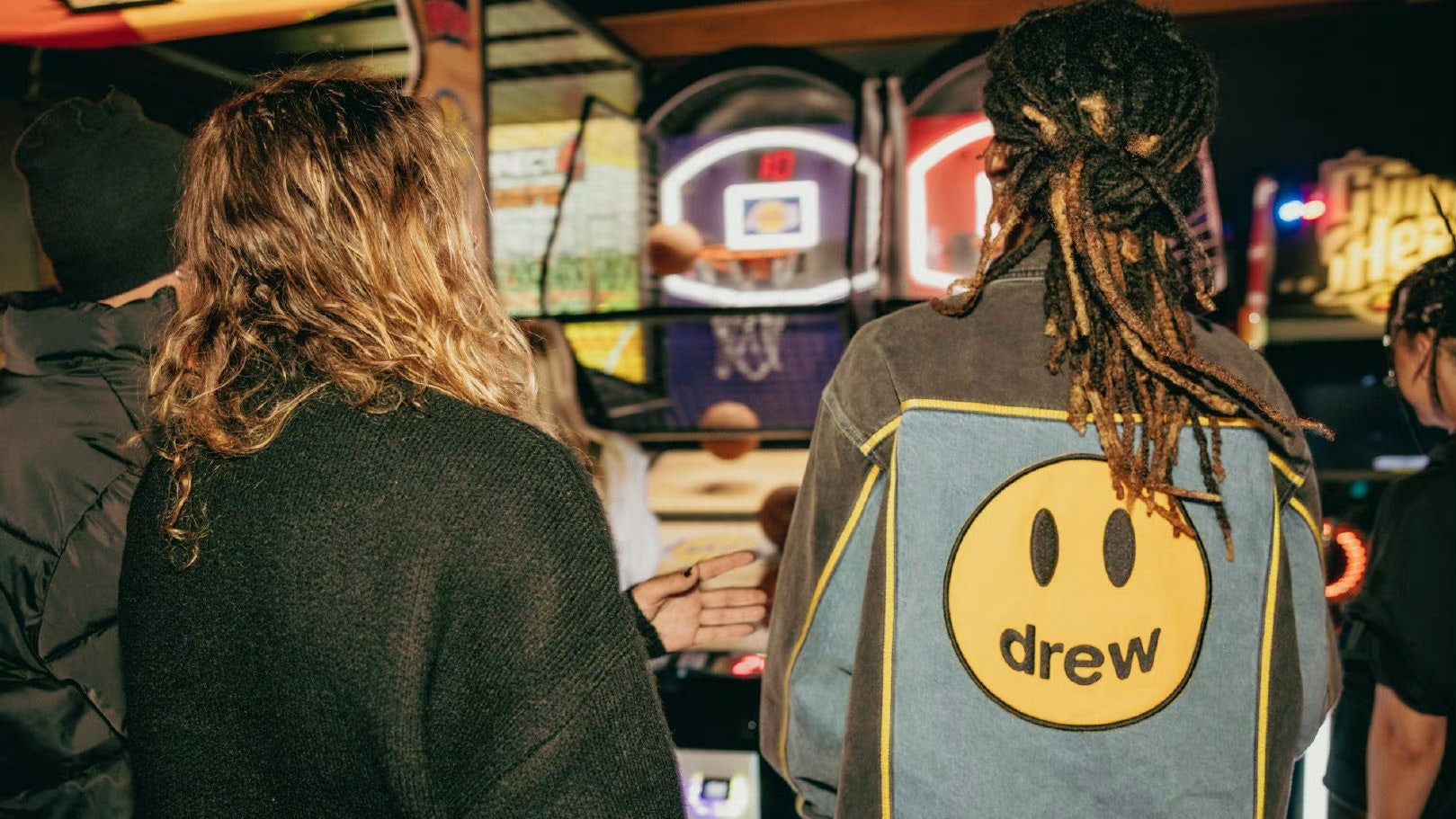Seizing the title of top fashion IP in China for 2022 is Fear of God, followed by its diffusion line Essentials, finds a new Fashion Exchange white paper on China’s top fashion brands.
Produced in partnership with CBNData, the report examines the consumption influence, search engine prevalence, and social media popularity of over 400 global fashion IPs, defined as a brand founded by a designer, celebrity, artist or influencer.
The latest rankings reveal a drastic reshuffling since 2021. Besides the top two IPs coming from the same founder for the first time in the four years the report has been compiled, the number of Chinese fashion IPs on the top-100 list doubled from 12 in 2021 to 24 in 2022.
Chinese supermodel Liu Wen (who transitioned into fashion design through collaborations with domestic brands) came in third, Hong Kong actor Shawn Yue’s brand Madness ranked fourth, and Bai Jingting’s Goodbai took ninth place. Also in the top 10 were Rihanna’s Fenty (fifth) and Justin Bieber’s Drew House (seventh), highlighting the desirability of celebrity-founded brands.
What do these findings say about consumer demand and behavior in China? And what lessons can brands draw to improve their performance?
Streetwear’s highs and lows#
Designer brands have consistently ranked as the category with the most fashion IPs since the list was started in 2019. Many of these top IPs could be classified as streetwear: Fear of God, Clot, Bape, and Yohji Yamamoto, to name a few.
However, not all are faring well in China. Supreme, California-based Stüssy, Japanese streetwear label Neighborhood, and UK skateboarding brand Palace have all seen their ranking fall year after year, according to Fashion Exchange.
“Having enjoyed years of enthusiasm, street trends are indeed on the wane,” writes Paul Fang, founder of the fashion IP collaboration platform, in the report.
What sets Fear of God apart is its minimalist aesthetic and advanced tailoring. It pioneers a high-end American street style that stands out against trend-chasing streetwear labels.
Described as the “dark horse” of 2021’s list by Fashion Exchange, Jerry Lorenzo’s label has won over many celebrities, such as Justin and Hailey Bieber, and collaborated with the likes of Nike, Zegna, and Adidas, the latter releasing its first collaborative product with Fear of God in 2022 at Innersect Festival in Shanghai.

“Some view Fear of God’s popularity in China as partly down to the brand’s more diverse design styles,” says Arnold Ma, founder of Qumin, a Chinese digital creative agency based in the UK. “Although it has streetwear genes, its design also shows twists of luxury and casual wear. This aesthetic caters to consumers’ varied demands, including the pursuit of individuality and personality, as well as a sense of high class.”
While the report indicates that interest in streetwear in China is waning, delving into the details reveals demand for this segment is evolving.
Ma points to the huge level of engagement streetwear generates on Xiaohongshu. The category has been viewed 240 million times on the platform, which is popular among China’s Gen Z consumers.
Celebrity fashion IPs are on an upward trajectory#
Meanwhile, celebrity IPs are on the rise. Fenty, Drew House, and Goodbai all entered Fashion Exchange’s top 10 for the first time last year, while Liu Wen became the highest ranking Chinese fashion IP, coming in third on the overall list. Of the 20 celebrities on the list, 15 are musicians. These include Jackson Wang and Luhan, whose respective brands, Team Wang and UGC, jumped more than 30 spots in 2022.
Part of this rise comes down to the power of celebrity. Marketed as cool and extremely chill, Drew House leverages Bieber’s cult following, which includes 286 million followers on Instagram and 3.5 million on Weibo, to consistently sell out.
When the low-fuss streetwear label set up a pop-up in Shanghai in 2019, fans queued up for an average of 10 hours. And after launching officially on Tmall last month, the inventory of more than 1,000 products sold out in just one second, reports Alibaba’s news site Alizila.
Beyond the celebrity factor, it is Drew House’s localized retail strategy that has helped set it apart in China, says Hazel Diliziya, a cultural and marketing consultant at Cherry Blossoms Intercultural Branding.
“After entering China, many sophisticated streetwear brands such as Supreme maintained the offline-oriented business model, which is a significant risk in an ecommerce-driven country,” she says. “Drew House, on the other hand, made a brilliant choice by joining Tmall and the WeChat Mini Program to provide convenient access for Chinese consumers.”

But given the fluctuating popularity of celebrities, not all businesses can last.
“What I fear the most is that my brand would become one that sells ‘celebrity merchandise.’ I think it must have its own style and design, so that even if it's detached from me, consumers will still recognize it,” Bai Jingting said in an interview that was quoted in Fashion Exchange’s report.
Celebrity merchandise created for short-term gain is often criticized by the general public for being expensive or poor quality.
Brands that are able to break free from the glamor of their celebrity founder and form an independent identity are on the path to maturity, Diliziya adds.
Local designs win market share#
Although the US boasted the most fashion IPs on the 2022 list, the quantity is decreasing year by year. In comparison, China overtook Japan for the first time as home to the second highest number of fashion IPs, as well as the most new entrants.
“This implies that although the fashion discourse long held by North America and especially Europe has not really shifted eastward, Asia is steadily catching up to them in terms of consumer power, aesthetics, creativity, and national identity,” notes the report. “Moreover, the new fashion IPs in Asia continue to soar and stir up new trends, whose influence should not be underestimated.”

Of the 13 fashion houses ranked on the list that were founded after 2015, eight are from China, including Xu Zhi, Xiao Li, Feng Chen Wang, and Short Sentence. In other words, not only are Chinese consumers continuing to embrace Made in China fashion, they are showing love to emerging designers, who are steadily diluting the market share of incumbents and disrupting the fashion hierarchy.
The changing composition of the ranking shows that nothing in the fashion industry stays the same for long, offering hope to new designers, as well as a warning to established names.


